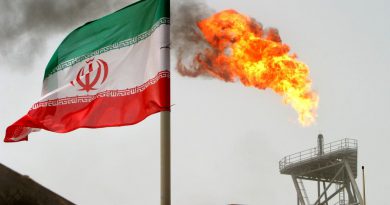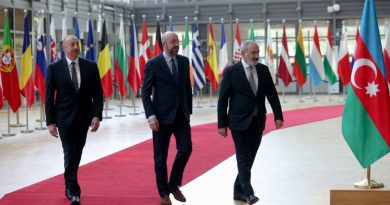Erdogan sees turning point in Turkey-Israel ties, with eye on energy
Ankara (Reuters) – Turkish President Tayyip Erdogan said on Wednesday he believed his Israeli counterpart’s visit will be a turning point in long-strained relations between the regional powers, and that Ankara was ready for cooperate in the energy sector.
He was speaking after talks with President Isaac Herzog, who was in Ankara for the first such trip by an Israeli leader since 2008.
The rivals are seeking to cool years of animosity, primarily over Israel’s occupation of Palestinian territories and Ankara’s support for the militant Islamist group Hamas governing Gaza.
“I believe this historic visit will be a new turning point in Turkey-Israel relations. Our mutual goal is to revive the political dialogue” on the basis of mutual interests, Erdogan told a news conference at the presidential palace.
“I think this is an opportunity to revive the cooperation on the topic of energy that began before,” he added, referring to the activities of Turkey’s drilling and seismic ships in the Mediterranean and Black Sea.
Erdogan has said previously the two countries could work together to carry Israeli natural gas to Europe, reviving an idea first discussed more than 20 years ago.
Gas supplies from the Mediterranean could ease European dependence on Russian gas, following Russia’s invasion of Ukraine and subsequent calls from European leaders to reduce the continent’s reliance on Moscow.
Plans for a subsea pipeline from the east Mediterranean to Europe, excluding Turkey, stalled after the United States expressed misgivings in January.
Herzog said the two countries must agree that they would not agree on everything.
“But we shall aspire to solve our disagreements with mutual respect and goodwill, by means of the proper mechanisms and institutions, which we shall develop together, and with our sights together on a common future,” he said.
“You and I, and your people and mine, we are all children of Abraham – the father of believers in God,” he added.
Protest
Diplomatic relations between Turkey and Israel hit a low in 2018 when they expelled ambassadors in a dispute over the killing by Israeli forces of 60 Palestinians during protests on the Gaza border.
The incident halted years of gradual reconciliation following a row over a 2010 Israeli raid on an aid ship sailing towards Gaza that killed nine Turkish pro-Palestinian activists. A tenth activist wounded in the incident died in 2014 after years in a coma.
Dozens of Turks protested on Wednesday against Herzog’s visit, calling on Ankara to reverse the “mistake” of boosting ties amid lingering animosity over the killing of the activists.
People lined up behind a banner emblazoned with the slogan: “We don’t want a killer in our country” at the protest, organised by a group set up to support victims of the raid.
“Mavi Marmara is our pride,” they chanted.
“This is a great pain and a torment, it is like a knife to our people’s chest,” said Mehmet Tunc, one of those who was on the Mavi Marmara ship at the time of the raid.
Through the years of animosity, Turkey and Israel have maintained trade, which stood at $6.7 billion in 2021, up from $5 billion in 2019 and 2020, according to official data.
Erdogan said he hoped trade would reach $10 billion this year.



